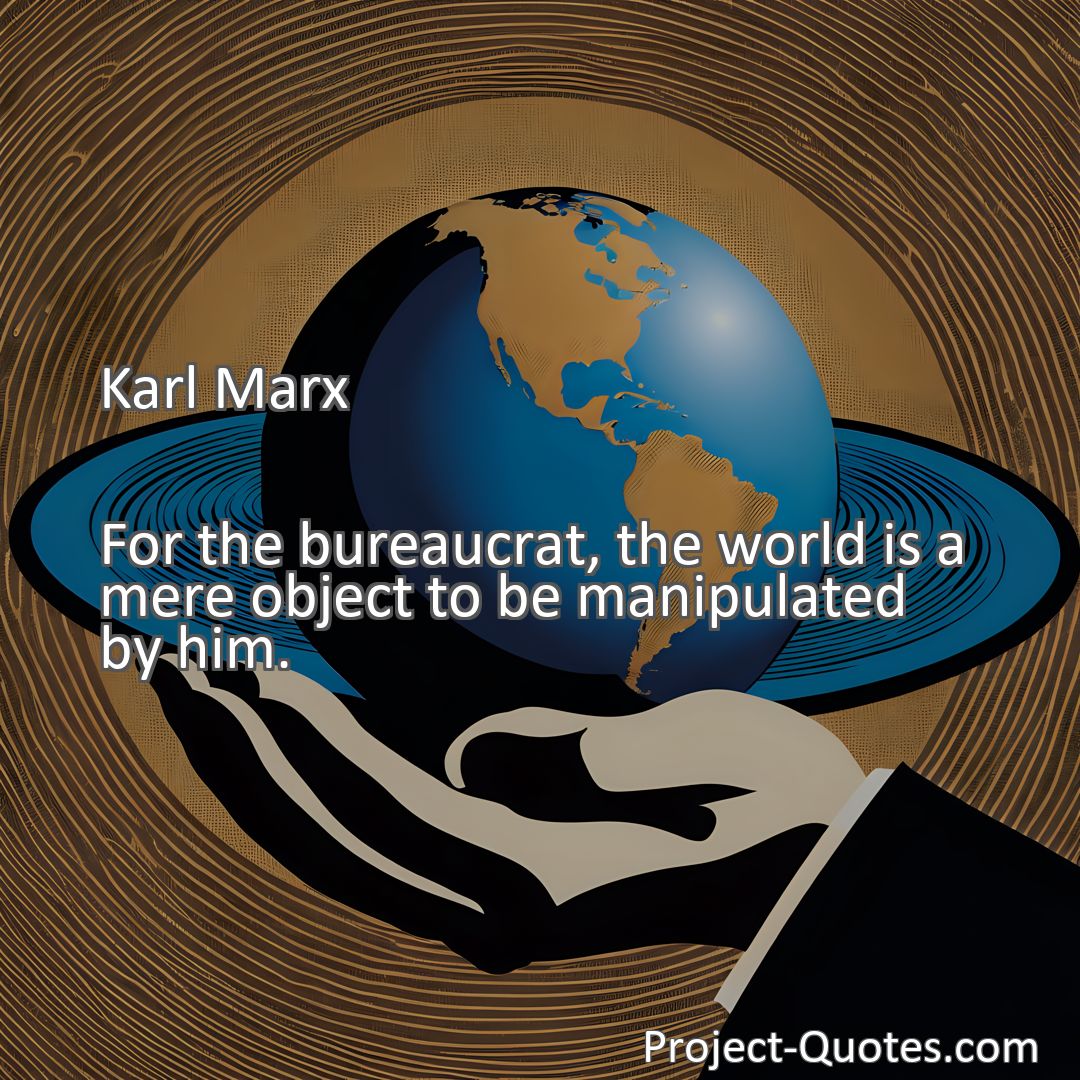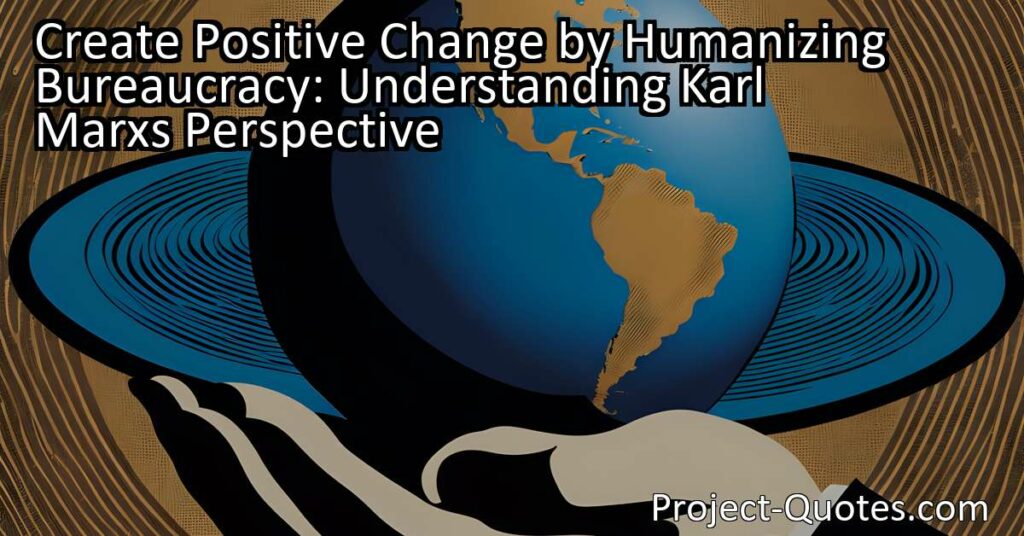For the bureaucrat, the world is a mere object to be manipulated by him.
Karl Marx
The title “Create Positive Change by Humanizing Bureaucracy: Understanding Karl Marx’s Perspective” explores the idea that bureaucracy can hinder progress and perpetuate inequalities due to a mindset of control and manipulation. Karl Marx’s quote highlights the detachment between bureaucrats and the people they serve, emphasizing the need to prioritize empathy and understanding. By humanizing bureaucracy and promoting collaboration, we can strive towards a more equitable society and create positive change.
Table of Contents
Meaning of Quote – For the bureaucrat, the world is a mere object to be manipulated by him.
In the words of the renowned philosopher and economist Karl Marx, “For the bureaucrat, the world is a mere object to be manipulated by him.” These insightful words shed light on a particular perspective on bureaucracy – a system commonly associated with red tape, hierarchical structures, and impersonal dealings. In this quote, Marx offers a critical examination of the mindset that often accompanies bureaucratic roles, emphasizing the detachment between bureaucrats and the world they navigate.
To truly understand Marx’s quote, it is important to first grasp the meaning of bureaucracy. Bureaucracy refers to a hierarchical organizational structure characterized by standardized procedures, formal rules, and specialized roles. While the system aims to improve efficiency and allocate resources effectively, it is not without its shortcomings. The impersonal nature of bureaucracy can sometimes lead to individuals perceiving the world as an object to be controlled rather than acknowledging the human factor associated with it.
Marx’s quote invites us to view bureaucracy from a critical lens, emphasizing the potentially harmful consequences of this mindset. When bureaucrats view the world merely as an object for manipulation, they may lose sight of the intrinsic value held by individuals and communities. This detachment from the human experience can inadvertently perpetuate inequalities and hinder progress.
At its core, bureaucracy revolves around the establishment and enforcement of rules and regulations. While these guidelines are necessary for order and stability, they can also give rise to a sense of superiority among bureaucrats, resulting in a disconnect with the world they are meant to serve. When bureaucrats primarily focus on enforcing and manipulating rules rather than understanding the needs and aspirations of the people, they risk alienating the very individuals they are meant to support.
Furthermore, Marx’s quote implies that bureaucrats function as the primary agents of control and manipulation within the bureaucratic system. They wield authority and power over the masses while prescribing and enforcing regulations. In this worldview, the bureaucrats’ perception of the world revolves around how they can utilize their position to exert control and mold society according to their own desires. This interpretation highlights the potential for corruption and abuse of power inherent in bureaucratic structures.
However, it is crucial to acknowledge that not all bureaucrats share this manipulative mindset. There are many dedicated civil servants who work diligently to serve the public and improve the lives of individuals within their communities. They recognize that the world is not simply an object to be manipulated but a complex web of interconnected lives and aspirations. These individuals strive to understand the needs and challenges faced by the people they serve and work towards creating positive change.
Nevertheless, even the most well-intentioned bureaucrats may find themselves inadvertently subscribing to the mindset of manipulation described by Marx. The bureaucratic system itself may foster an environment that prioritizes compliance with established rules over empathy and individuality. As a result, even those who aim to create positive change may become disillusioned and lose sight of the human element inherent in their work.
To combat the negative effects of bureaucratization, it is crucial to humanize bureaucracy. Efforts should be made to promote empathy, transparency, and flexibility within bureaucratic structures. By placing greater emphasis on understanding the needs and aspirations of individuals, bureaucrats can develop policies and procedures that genuinely benefit the wider population. It is essential to foster an environment that encourages collaboration and welcomes diverse viewpoints, recognizing that the world is not an object to be manipulated but a collective tapestry of human experiences.
In conclusion, when Karl Marx asserted, “For the bureaucrat, the world is a mere object to be manipulated by him,” he shed light on a troubling aspect of bureaucratic systems. By highlighting the potentially harmful consequences of perceiving the world solely as a means for manipulation, Marx’s quote urges both bureaucrats and society at large to consider the impact of bureaucracy on individuals and communities. It serves as a reminder that effective governance should prioritize the needs, dreams, and aspirations of the people it serves, elevating their value above mere objects to be controlled. By humanizing bureaucracy and encouraging empathetic decision-making, we can strive towards a more equitable and inclusive society.
I hope this quote inspired image brings you hope and peace. Share it with someone who needs it today!


